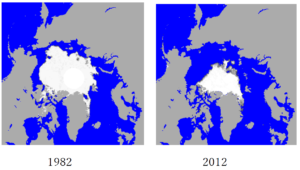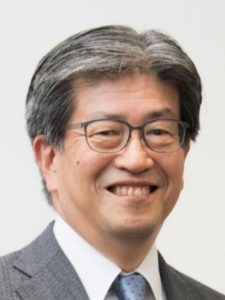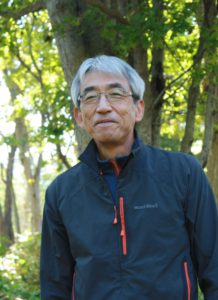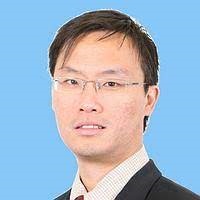IEVC 2021 | Program & Keynotes
Program Timetable Invited Talks Special Sessions
Program
- PDF program (Updated on September 7th)
- HTML program (Last updated on September 1st)
- Poster session program (Updated on August 26th)
- The URL, user ID, and password of proceedings were emailed to participants on September 6th. They will be available from September 8th, 2021.
Timetable
- For speakers, please check the presentation method here.
- The following timetables are subject to change.
- URLs and usages of the Zoom and TeleAgora were emailed to participants on September 6th.
- The usage of Gather.town for Banquet & Award will be emailed to participants at a later date.
Wednesday, September 8
Abstract Another format timetable
| Time (JST) | Main Room (on Zoom) |
Room A (Breakout room A on Zoom) |
Room B (Breakout room B on Zoom) |
|
|---|---|---|---|---|
| 10:00-10:30 | Opening | |||
| 10:30-11:30 | Invited Talk #1 | |||
| 11:30-13:00 | Lunch | |||
| 13:00-14:20 | 1A: (Oral) Image Recognition & Detection (1) | 1B: (Oral) Modeling | ||
| 14:20-14:35 | Break | |||
| 14:35-15:55 | 2A: (Oral) Image Processing and Coding (1) | 2B: (Oral) Rendering | ||
| 15:55-16:10 | Break | |||
| 16:10-16:40 | Fast-Forward (short) presentation for Posters & Late Breaking Papers |
Thursday, September 9
Abstract Another format timetable
| Time (JST) | Main Room (on Zoom) |
Room A (Breakout room A on Zoom) |
Room B (Breakout room B on Zoom) |
Poster Room (TeleAgora) |
|
|---|---|---|---|---|---|
| 10:00-11:20 | 3A: (Oral) Image Recognition & Detection (2) | 3B: (Oral) Visualization & Image Processing | |||
| 11:20-13:00 | Lunch | ||||
| 13:00-14:00 | Invited Talk #2 This talk will be given in Japanese. |
||||
| 14:00-14:15 | Break | ||||
| 14:15-15:35 | 4A: (Special Session) Drone overview |
4B: (Oral) Deep Learning & Video processing | |||
| 15:35-15:50 | Break | ||||
| 15:50-16:50 | Poster presentation 1 (General Papers) |
Friday, September 10
Abstract Another format timetable
| Time (JST) | Main Room (on Zoom) |
Room A (Breakout room A on Zoom) |
Room B (Breakout room B on Zoom) |
Poster Room (TeleAgora) |
|
|---|---|---|---|---|---|
| 10:00-11:20 | 5A: (Oral) Computer Vision & 3D Image Processing | 5B: (Oral) Virtual, Augmented, and Mixed Reality | |||
| 11:20-13:00 | Lunch | ||||
| 13:00-14:00 | Invited Talk #3 | ||||
| 14:00-14:15 | Break | ||||
| 14:15-15:15 | Poster presentation 2 (Late Breaking Papers) |
||||
| 15:15-15:30 | Break | ||||
| 15:30-17:30 | 6A: (Oral) Medical Imaging | 6B: (Special Session) Safe & Secure Society overview |
|||
| Banquet Room (Gather.town) | |||||
| 18:00-19:30 | Banquet & Award | ||||
Saturday, September 11
Abstract Another format timetable
| Time (JST) | Main Room (on Zoom) |
Room A (Breakout room A on Zoom) |
Room B (Breakout room B on Zoom) |
|
|---|---|---|---|---|
| 9:30-10:50 | 7A: (Oral) Image Processing and Coding (2) | 7B: (Special Session) Digital Museum and Humanities 1 Overview |
||
| 10:50-11:05 | Break | |||
| 11:05-12:25 | 8A: (Oral) Image Application | 8B: (Special Session) Digital Museum and Humanities 2 Overview |
||
| 12:25-12:35 | Break | |||
| 12:35-13:00 | Closing |
Invited Talks
Invited Talk #1: Global Warming and Importance of Sea Ice Monitoring from Space
Abstract:  The recent IPCC WG1 report published in August 2021 says that Global warming of 1.5°C and 2°C will be exceeded during the 21st century unless deep reductions in CO2 and other greenhouse gas emissions occur in the coming decades. Global warming is one of the most serious problems facing mankind in the 21st Century. Sea ice has an important role of reflecting the solar radiation back into space. However, once the sea ice melt, the open water starts to absorb the solar radiation which may speed-up the global warming. Thus, monitoring of sea ice is very important from global warming point of view. Observing sea ice from space using sensors onboard satellites is a powerful tool for monitoring the global distribution of sea ice on daily basis. In my talk, after shortly reviewing the current status of global warming, the technologies of monitoring sea ice from space will be presented including the reduction trend of sea ice distribution of the Arctic Sea and the Sea of Okhotsk.
The recent IPCC WG1 report published in August 2021 says that Global warming of 1.5°C and 2°C will be exceeded during the 21st century unless deep reductions in CO2 and other greenhouse gas emissions occur in the coming decades. Global warming is one of the most serious problems facing mankind in the 21st Century. Sea ice has an important role of reflecting the solar radiation back into space. However, once the sea ice melt, the open water starts to absorb the solar radiation which may speed-up the global warming. Thus, monitoring of sea ice is very important from global warming point of view. Observing sea ice from space using sensors onboard satellites is a powerful tool for monitoring the global distribution of sea ice on daily basis. In my talk, after shortly reviewing the current status of global warming, the technologies of monitoring sea ice from space will be presented including the reduction trend of sea ice distribution of the Arctic Sea and the Sea of Okhotsk.
Speaker: Prof. Kohei Cho
Director of Tokai University Research &Information Center
 Kohei Cho graduated Department of Applied Physics at the Tokyo University of Science in 1979 and finished his master course on remote sensing at Chiba University in 1981. After working ten years at the Remote Sensing Technology Center of Japan (RESTEC) as a remote sensing scientist, he joint Tokai University, He has been the General Secretary of the Asian Association on Remote Sensing (AARS) since 2009, He has published more than 100 papers on remote sensing in national & international journals and proceedings. He is also co-author of 15 books on remote sensing and image processing. His scientific interest includes but not limited to sea ice monitoring using passive microwave sensors, disaster monitoring from space, and e-Learning. He was awarded the Dr. Boon Indrambarya Gold Medal in 2009 and the Samuel Gamble Award in 2012.
Kohei Cho graduated Department of Applied Physics at the Tokyo University of Science in 1979 and finished his master course on remote sensing at Chiba University in 1981. After working ten years at the Remote Sensing Technology Center of Japan (RESTEC) as a remote sensing scientist, he joint Tokai University, He has been the General Secretary of the Asian Association on Remote Sensing (AARS) since 2009, He has published more than 100 papers on remote sensing in national & international journals and proceedings. He is also co-author of 15 books on remote sensing and image processing. His scientific interest includes but not limited to sea ice monitoring using passive microwave sensors, disaster monitoring from space, and e-Learning. He was awarded the Dr. Boon Indrambarya Gold Medal in 2009 and the Samuel Gamble Award in 2012.
Invited Talk #2: The World Heritage Registration of Shiretoko and the Environmental Conservation Efforts
This talk will be given in Japanese.
Abstract: Shiretoko was designated by UNESCO as Japan’s third World Natural Heritage site in 2005. This presentation will start with an overview of the nature of Shiretoko and the history of the local activities for the preservation of the natural environment prior to its inclusion into the World Heritage list, then will explain how the World Natural Heritage site has been managed since being listed, how the inhabitant consciousness has been changed, what problems we are facing, and what we are expecting to the multimedia computing and visual computing technologies of IIEEJ (The Institute of Image Electronics Engineers of Japan) to solve the problems. In the last part, the presentation will mention on Shiretoko Nature Foundation, which is working on field researches, wildlife management, park management, reforestation, and environmental education in Shiretoko.
Speaker: Mr. Ryousuke Murata
Director of Shiretoko Nature Foundation
 He was born in Ishikawa Prefecture, Japan in 1954. He is currently the director of Shiretoko Nature Foundation since 2016. He has spent most of his career in Shari Town Office, as the archaeology curator at Shiretoko Museum, the department manager of General Affairs and Planning, the superintendent of schools, and so on. He, especially, made a considerable effort for the World Heritage registration of Shiretoko when he was the manager of Environmental Division. He enjoys mountain climbing, mountain skiing, canoeing, and spreading the appeals of Shiretoko to the world.
He was born in Ishikawa Prefecture, Japan in 1954. He is currently the director of Shiretoko Nature Foundation since 2016. He has spent most of his career in Shari Town Office, as the archaeology curator at Shiretoko Museum, the department manager of General Affairs and Planning, the superintendent of schools, and so on. He, especially, made a considerable effort for the World Heritage registration of Shiretoko when he was the manager of Environmental Division. He enjoys mountain climbing, mountain skiing, canoeing, and spreading the appeals of Shiretoko to the world.
Invited Talk #3: DeepIPR – Intellectual Property Protection for Deep Learning Model
Abstract: With substantial amounts of time, resources and human (team) efforts invested to explore and develop successful deep neural networks (DNN), there emerges an urgent need to protect these inventions from being illegally copied, redistributed, or abused without respecting the intellectual properties of legitimate owners. Following recent progress along this line, we investigate a number of watermark-based DNN ownership verification methods in the face of ambiguity attacks, which aim to cast doubts on the ownership verification by forging counterfeit watermarks. It is shown that ambiguity attacks pose serious threats to existing DNN watermarking methods. As a remedy to the above-mentioned loophole, this paper proposes novel passport-based DNN ownership verification schemes which are both robust to network modifications and resilient to ambiguity attacks. The gist of embedding digital passports is to design and train DNN models in a way such that, the DNN inference performance of an original task will be significantly deteriorated due to forged passports. In other words, genuine passports are not only verified by looking for the predefined signatures, but also reasserted by the unyielding DNN model inference performances. Extensive experimental results justify the effectiveness of the proposed passport-based DNN ownership verification schemes. Code and models are available at https://github.com/kamwoh/DeepIPR
Speaker: Associate Prof. Chee Seng Chan
Faculty of Computer Science and Information Technology, Universiti Malaya

Chee Seng Chan received his Ph.D. from University of Portsmouth, U.K. under the supervision of Prof. Honghai Liu in 2008. In general, his research interests include computer vision and machine learning with focus on scene understanding. He is also interested in the interplay between vision and language – generating sentential descriptions about complex scenes. He is a recipient of the Young Scientist Network-Academy of Sciences Malaysia (YSN-ASM) in 2015 and Hitachi Research Fellowship in 2013. He is a senior member of IEEE.
Special Sessions
Special Session 1: Digital Museum and Humanities
Session Organizer: Makoto Hirayama (Osaka Institute of Technology)
Digital technologies have given huge impacts on fields not only in engineering but also in humanities and cultures. A special session organized by SIG on Digital Museum and Humanities (SIG-DMH) will be held in IEVC2021. Talks related to museums, humanities, cultures, entertainment, and etc. are welcome to be presented in this special session.
Special Session 2: Drone
Session Organizer: Katsuya Hasegawa (JAXA)
Drones and imaging technology have a very close relationship. We have started a special session on “Drones” at IEVC2021. This session will accept all type of drones. It will not only in the sky, but also on land, water, and underwater. We welcome to be presented in this special session on the design of drones, operational techniques, applications, image analysis, etc.
Special Session 3: Technologies for Safe and Secure Society
Session Organizer: Osamu Uchida (Tokai University)
Due to the frequent occurrence of large-scale natural disasters and the COVID-19 pandemic that has continued since last year, interest in a safe and secure society is increasing. In addition, since this year is the 10th anniversary of the Great East Japan Earthquake, a special session on technologies for safe and secure society will be held in IEVC2021. Talks related to emergency management, disaster monitoring, disaster prevention and mitigation, security and privacy, COVID-19, and etc. are welcome to be presented in this special session.

